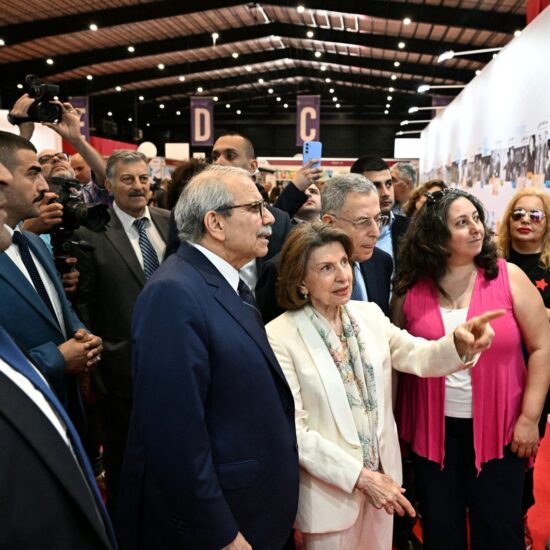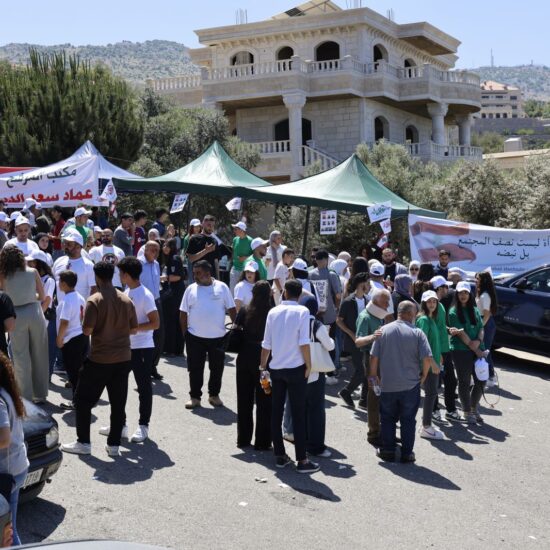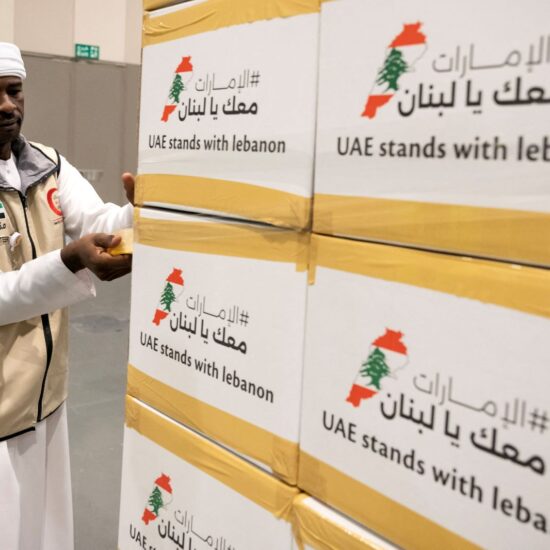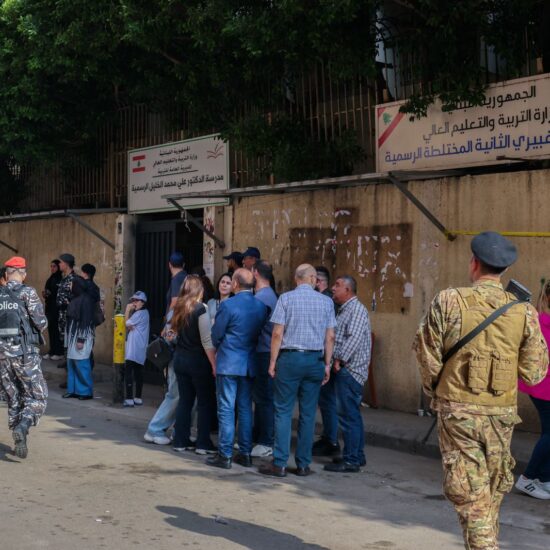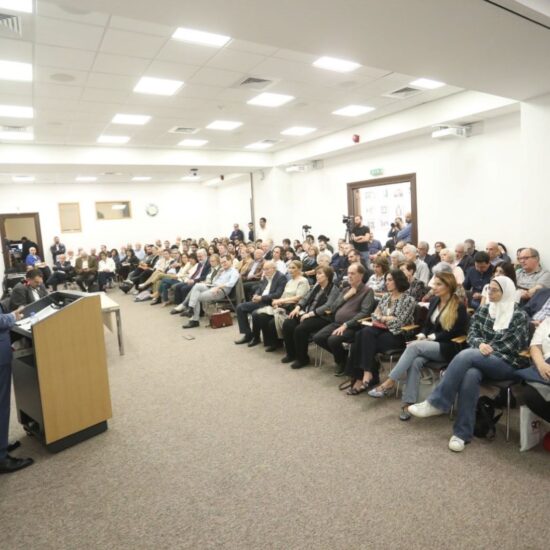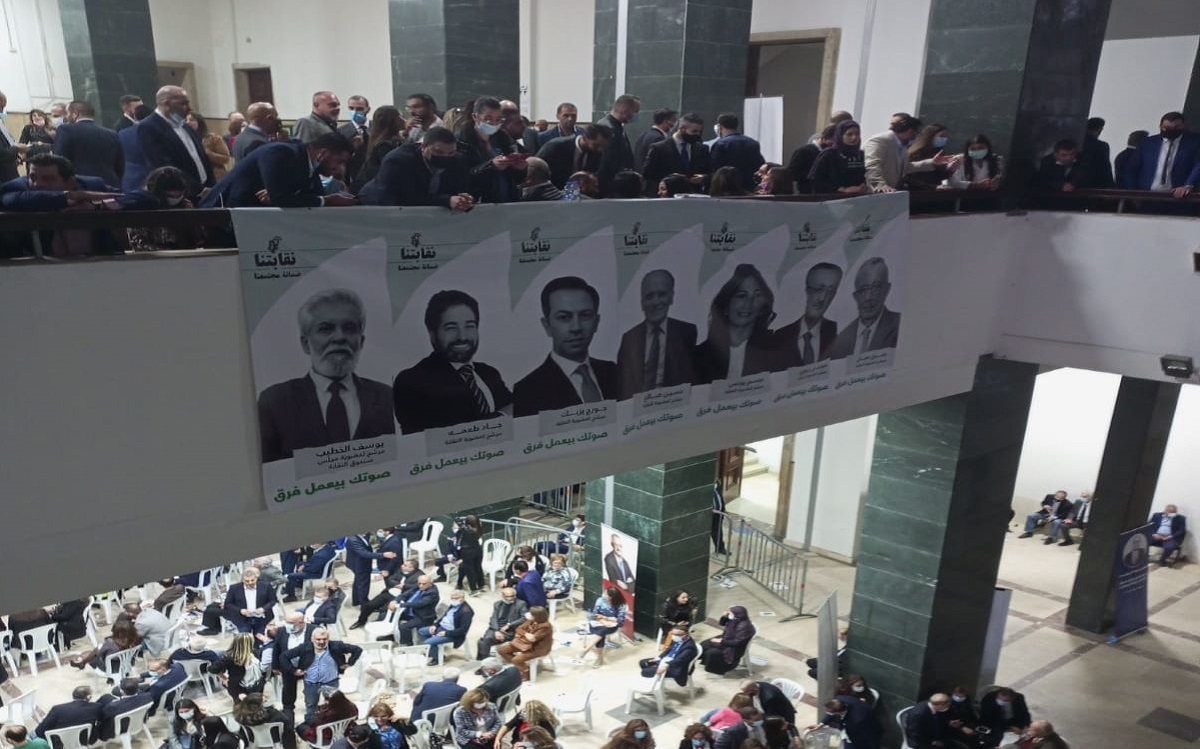
Lina, a 45-year-old lawyer, says she was taken aback when she arrived at Beirut’s Palace of Justice to vote at 10 am on Sunday, November 21.
She says there were obvious delays and a lack of organization in this year’s elections for the leadership of the Beirut Bar Association.
“Unlike the previous years, ballot boxes opened around 11:30 am and I had to wait for an hour in line. Usually, the final results would be out by 4 pm, this year the results of the first round came out at 3 pm,” the lawyer told NOW.
After two consecutive years of the domination of elections in professional organizations by candidates from October 17 opposition groups or independent candidates, including the Bar Association and the Order of Engineers and Architects, the results of last Sunday’s vote came as a surprise.
Nader Gaspard, who ran as an independent but was supported by Future Movement, Amal Movement, and the Free Patriotic Movement as well as other establishment parties, won the leadership of the Bar Association, with 1,888 votes in the first round and 1,530 votes in the second.
The opposition groups were divided into two lists: Nakabetna (Our Order of Lawyers) – backed by opposition groups such as Beirut Madinati and October 17 factions such as Mada, Li Haqqi, Citizens in State – and the Opposition Front – backed by a coalition that unites the Kataeb party with October 17 groups such as, Taqqadom, Khat Ahmar, Rebels.
Diane Assaf, the Beirut-based lawyer behind the Instagram page “lawwithdiane” where she breaks down legal topics, stated that the divisions within the October 17 groups were detrimental to their success and raised concerns over the political traction that they may be losing months before the parliamentary elections.
“Nakabetna couldn’t agree on one candidate for the position of the head of the association and they were late to start their campaign,” the lawyer told NOW.

Still searching for the right path
Jad Tohme, a lawyer for over 20 years and an active participant in the Bar’s internal affairs, said that one of the causes of the opposition’s loss was that candidates started campaigning too late and did not have time to raise enough support.
“By law, you can become a candidate by applying for the position yourself or if a group of lawyers applies on your behalf. I had 93 lawyers who supported my application so I ran for the position. I started my campaign in August, that’s very late,” Tohme told NOW.
According to some sources interviewed by NOW, electoral campaigns in the Bar Association start at the beginning of the year with lunch and dinner invitations, as well as formal discussions and conferences.
Nakabetna came to be after sixteen October 17 groups gathered candidates that were already running for elections as independents.
“They brought in the list of the candidates and chose whoever fit their criteria and values, anti-establishment, anti-corruption, independent etc. But these were not people that necessarily knew each other beforehand or planned on working together,” Tohme explained.
Then the disagreements began.
Assaf explained that Karim Daher, a popular lawyer amongst his peers, was a potential candidate for the position of president, with a strong chance of winning. But, no agreement could be reached around his candidacy.
“Daher was an independent candidate that represented the revolution’s values and principles but he had to withdraw because some groups opposed his candidacy. The reason was that Fadi Al Masri, a lawyer running with him for membership, was a Kataeb member,” Assaf stated.
Some opposition groups have accepted Kataeb’s positioning as opposition, after they withdrew from the government in 2016 and left the Parliament in 2020 after the Beirut blast, but many groups still associate the party with the establishment.
Daher eventually withdrew from the fight and the October 17 groups chose two new candidates for potential presidents, Ramzi Haikal and Moussa Khoury.
Further divisions amongst the Nakabetna candidates led to divided votes, with some accusing Haikal on social media of “working for the banking sector”, as he served as a lawyer for Bank of Beirut and the Arab Countries (BBAC).
“Not only were the votes divided, but the candidates also started to shoot at one another,” Assaf commented.
Citizens in State (MMFD) endorsed their preferred candidate, Moussa Khoury, who prioritized helping the lawyers and the Bar Association retrieve their savings funds from banks.
They used their social media platforms extensively to promote him.
Alexis Al Haddad, Commissioner for Internal Political Relations at MMFD, told NOW that their campaign supporting Khoury wasn’t an attempt at bashing Ramzi Haikal in any way.
“We made clear from the beginning that our group rooted for Khoury but the October 17 groups agreed to go for two candidates, whoever would get the most votes in the first round, would move on to the second one and the other would withdraw,” Al Haddad said.
“Not all of us wanted two but we settled for two,” he added.
The lack of internal agreements was also evident when the Opposition Front endorsed three candidates from Nakabetna – Mayssam Younes, Hussein Saleh and George Yazbek.
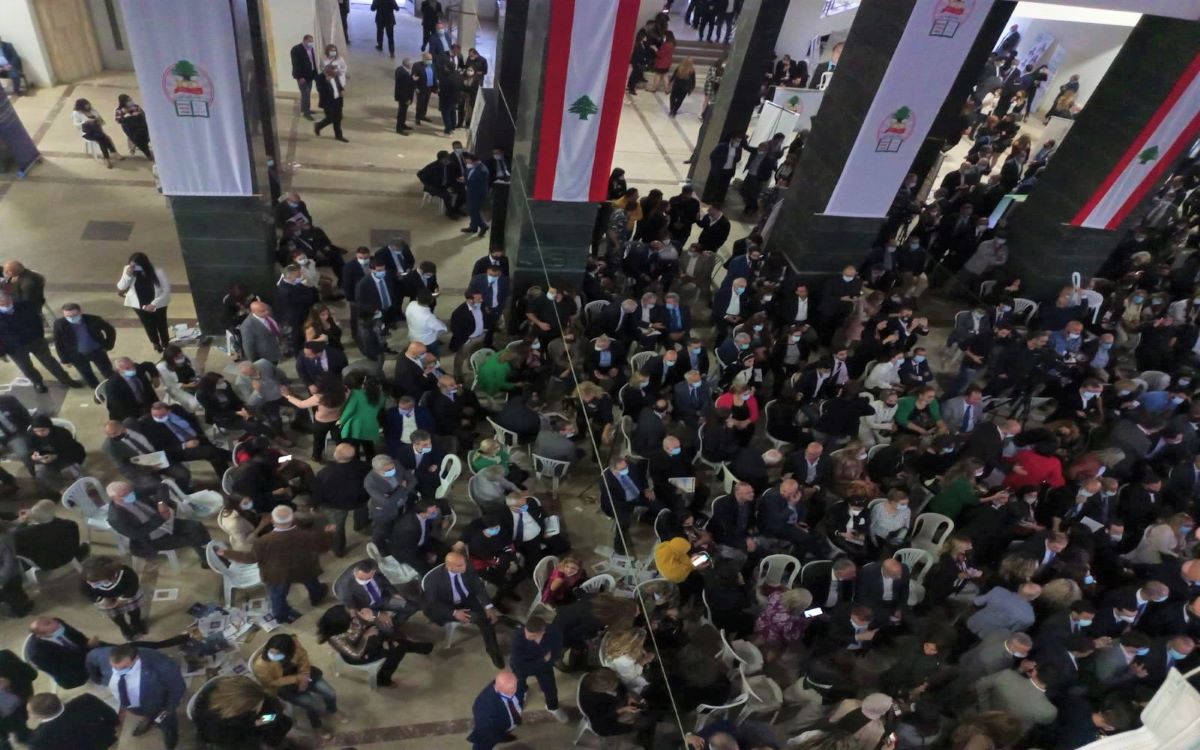
Lessons to learn
Both Assaf and Tohme said that ego, selfishness, and lack of unity all had to be put aside if things were to change for the opposition in the parliamentary elections next year.
“This is a warning signal for us; the traditional parties are not smarter than us but we need to put in more effort on how we present ourselves to the public. We can’t keep promoting the revolution’s slogans if we don’t represent them,” Tohme explained.
A lawyer who preferred to remain anonymous also explained that there were conspiracy theories circulating among lawyers, especially after the Tayyouneh clashes on October 14, which lead to some sectarian divisions.
“When gunmen from Ein El Remmaneh [members of the Lebanese Forces] were called for investigation, there wasn’t immediate action taken by lawyers from the Bar Association. Which some compared to the prompt response some lawyers would take when protestors would get arrested,” the source said.
It is still unclear what policy direction the Bar Association will follow in the near future. In his interviews with local media, Gaspard announced that politics should be kept away from legal affairs and that the savings funds and the lawyers’ health insurance were a priority of his.
“I’ve gathered all the files and I know where all the problems reside, whether it’s with the magistrates or amongst the lawyers themselves,” Gaspard said to Assaf in an interview on her page.
The new head of the Bar Association said he planned on helping the Lebanese people and the lawyers recover the money lost in Lebanese banks, and to continue putting pressure on the Beirut blast file.
The importance of this institution, Assaf explained, is through its practice of democracy. Lawyers are the members of society that are most well-versed with law, and trusted to uphold justice, and many end up in politics, serving as ministers and MPs.
“Back when the parliament was practicing its legislative role, it was important for politicians to be well aware of the law but after the assassination of the former prime minister Rafik Al Hariri, it became the parliament of businessmen,” Tohme explained.
Following the 2015 protests, the country witnessed a rise in activism among lawyers, many of who became involved in secular opposition groups and also defended protestors during their arrests pro bono, through the Committee to Defend Protesters. The Bar Association played an important role in easing political pressure and backing lawyers facing flawed procedures, as political interests preserved a stronghold over the judiciary.
“The BBA is capable of completely shaking the whole country, only if it willingly decides to do so,” Tohme stated.
Between lack of unity, smear campaigns and disorganization, Lina worried what this could mean for the future.
“This time the traditional parties were very smart and I think they knew their opponents were weaker this time. I hope the opposition learns from this and remembers why they’re doing this in the first place,” the lawyer said.
Dana Hourany is a multimedia journalist with @NOW_leb. She is on Instagram @danahourany.



